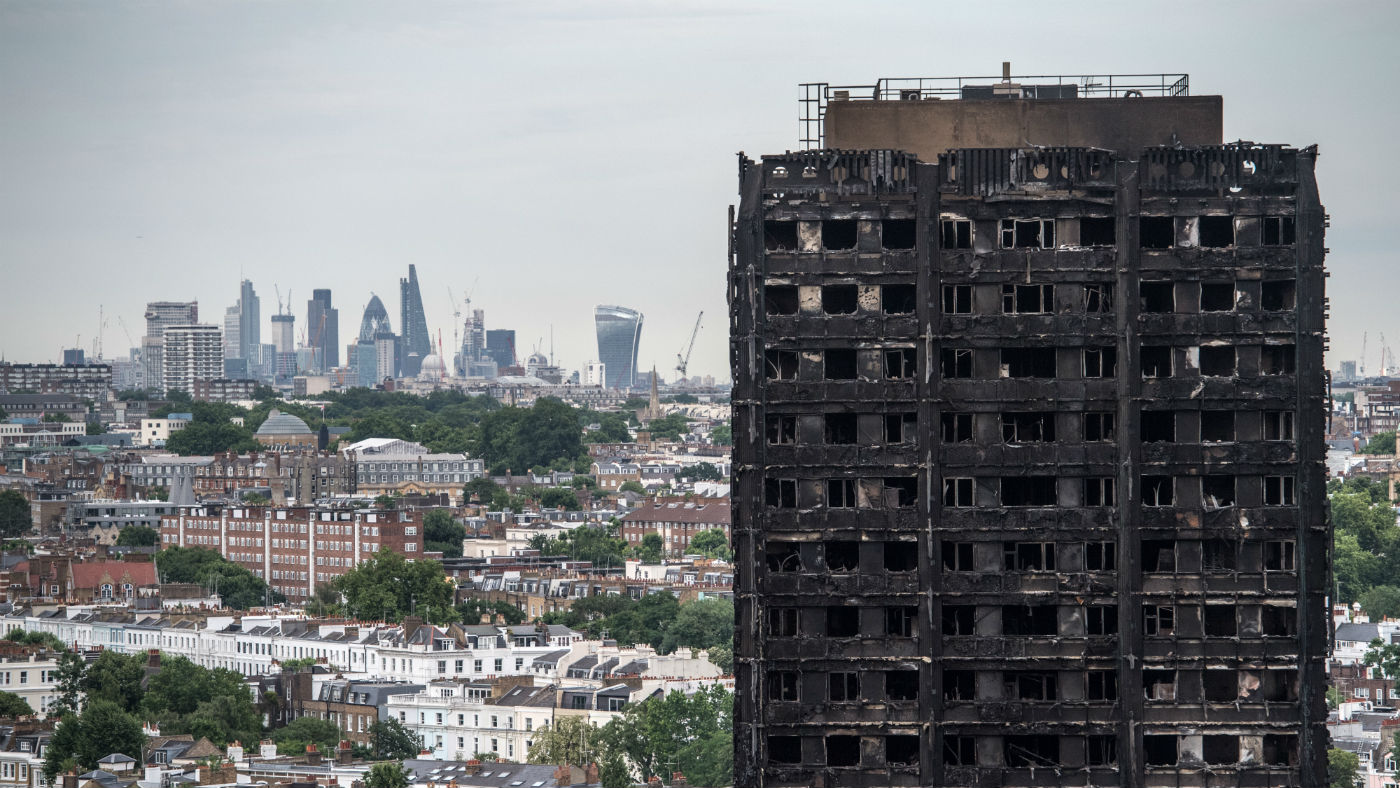Grenfell scandal: why Boris Johnson may have to reconsider his inquiry selection
Prime minister is criticised over his appointee’s potential conflict of interest

A free daily email with the biggest news stories of the day – and the best features from TheWeek.com
You are now subscribed
Your newsletter sign-up was successful
Grenfell Tower families have raised concerns with Boris Johnson over his selection of a member of the inquiry into the fire that killed 72 people.
Benita Mehra, appointed by the prime minister in December, ran a charity that received funding linked to US firm Arconic, which supplied the cladding that caused the fire to spread, The Guardian has revealed.
Mehra is set join the inquiry for its second phase, starting in late January.
The Week
Escape your echo chamber. Get the facts behind the news, plus analysis from multiple perspectives.

Sign up for The Week's Free Newsletters
From our morning news briefing to a weekly Good News Newsletter, get the best of The Week delivered directly to your inbox.
From our morning news briefing to a weekly Good News Newsletter, get the best of The Week delivered directly to your inbox.
What is the inquiry’s aim?
The purpose of the inquiry is to examine the circumstances leading up to, and surrounding, the fire.
Phase 1, which concluded hearings in December 2018, focused on the factual narrative of the events on the night of the fire, 14 June 2017.
The Phase 1 report, published in October last year, found that the cladding on the tower block did not comply with building regulations and was the “principal” reason for the fire’s rapid and “profoundly shocking” spread, says the BBC.
A free daily email with the biggest news stories of the day – and the best features from TheWeek.com
Phase 2, which is due to start on 27 January, will focus on the remainder of the list of issues to do with the fire, including the refurbishment of the building and its role in the fire, and issues surrounding building regulations.
Who is Benita Mehra?
The prime minister announced that Mehra would be joining the inquiry as a panel member in December last year, replacing Professor Nabeel Hamdi, who decided to quit because of the commitment involved in taking part in the inquiry.
The appointment of Mehra, a civil engineer, had already upset some in the Grenfell community because she was seen as an inadequate replacement for Hamdi, who had greater experience of social housing and community relations, which some families see as lacking in the inquiry leadership, reports the Guardian.
In a letter from Boris Johnson to Sir Martin Moore-Bick QC, who chairs the inquiry, the prime minister describes Mehra as a “highly experienced engineer with a range of skills and experience directly relevant to the issues that the Inquiry will be investigating in Phase 2 of its work”.
The letter coninues: “I must not appoint a person to the panel who has a direct interest in the matters to which the Inquiry relates… Ms Mehra has confirmed that she is not aware of any conflict of interest and Cabinet Office officials have also taken due diligence which has not identified any concerns.”
What is the conflict of interest?
It has emerged that Mehra is an immediate past president of the Women’s Engineering Society (WES), which received funding from the Arconic Foundation, which is linked to the company that supplied the Grenfell cladding.
Arconic said the grant was made by its charity, the Arconic Foundation, which it claims is “an independently endowed and managed foundation”.
An Arconic spokesperson said: “It’s part of Arconic Foundation’s mission to create access to these fields [engineering] for girls and women all over the globe. The grant we awarded in 2017 to this particular UK association was purely on this basis.”
Families of 69 of the Grenfell victims and 177 survivors are separately suing Arconic and other materials manufacturers in US courts for wrongful deaths resulting from the fire.
A spokesperson for the inquiry dismissed concerns that Mehra’s former involvement with the Arconic Foundation will influence her ability to be impartial.
“The consideration and appointment of panel members is a matter for the Cabinet Office,” said the spokesperson. “The inquiry does not consider that Benita Mehra’s former presidency of the Women’s Engineering Society in any way affects her impartiality as a panel member.”
What have Grenfell families said?
Shah Aghlani, who lost his mother and aunt in the fire, told the BBC: “We have to look into it and see what the facts are and, if there’s a conflict interest, I’m afraid she has to go. She has to be replaced.
“She’s going to be sitting on a panel judging and analysing things and we can’t have any sort of conflict of interest,” he added.
Karim Mussilhy, vice-chairman of the survivors and bereaved group Grenfell United, told The Guardian: “[Mehra’s] society has been supported by Arconic. She will look at it from the perspective of Arconic doing good things for the industry, that they are a great organisation. Her perspective will be affected.”
What has the reaction been?
In a meeting with bereaved Grenfell families held on Thursday, Johnson responded to concerns by promising to “listen, look into it… and come back to” the families.
After the meeting, a No. 10 spokesperson added: “During the meeting, they reflected on the phase one report of the Grenfell Inquiry, and looked ahead to the next stage.”
The prime minister had “reaffirmed his commitment to getting to the truth of what happened, learn lessons and deliver justice for victims”, added the spokesperson.
But David Lammy MP tweeted the decision to appoint Mehra was “scandalous”.
“Grenfell survivors are right to describe this appointment as a slap in the face,” the Tottenham MP wrote. “Mehra must stand down so there is no conflict of interest. The 72 who died in the fire deserve justice.”